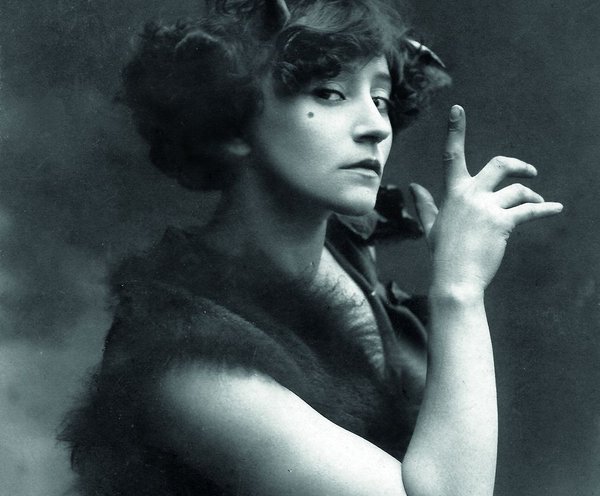
“Behind every great man is a great woman” – an idiom apparently popular since the 1940s, generally accepted as truth by both men and women but what a social ball-and-chain for women! Certainly, an announcement of where the proper place is for a woman and how her status should be defined. There are a number of opposite idioms created just for women:
- Every great man has a woman behind him … and every great woman has some man or other in front of her, tripping her up
- Behind every great woman there is a bunch of other great women
- Behind every successful woman is herself
- Behind every great woman is a great cat
Except for the cat one, I do not like these, they sound like a list of grievances. Western world is changing and so is the status of women and the expectations placed upon us (because of my ignorance it is hard for me to speak of the other nations where women are still tremendously suppressed – Holy Cow! What is going on in Afghanistan!). In Melinda Gates’ book she addressed with knowledge many topics associated with the female cause from Africa to Asia and the lands in between. Hmm, let’s speak of Melinda, a highly educated lady, achieved success in business and matrimony. Married Bill Gates and at some point she stepped back to raise her kids and then once again stepped up to become engaged in the charitable Gates Foundation. My questions are:
- Would Bill Gates accomplish as much business and financial success without Melinda?
- Would Bill Gates live a “normal”, happy, family life without Melinda and is that important to him?
- Would Melinda achieve more or less without being married to Bill Gates?
- Why am I writing Bill Gates (full name) and Melinda (just the first name)? It seems natural but am I giving Bill more respect that I am giving
- Melinda and if so, why?
In her book, Melinda Gates acknowledges that she stepped back to take care of her family because that is what she wanted to do. She also states that while being a professional, she wishes that she would have done more to promote women in business. Based on her book, Melinda Gates does fantastic work promoting women issues across the world (I hope that is all true).
Now let us examine a few great ladies in the world of literature

Zelda Fitzgerald
Zelda and Scott Fitzgerald – Some say that Zelda helped and inspired Scott. Others say that he “appropriated his wife’s writings.” Zelda herself seemed to acknowledge that some material from her diaries and her letters “made” its way into Scott’s books. The world of 1920 flappers was very different from the world of computer chips and cellular phones (honorable mention to celluloid) – women certainly had a different position in society. Maybe Zelda’s tone and flow of writing (read: Save Me the Waltz) was not as good as Scott’s. Maybe it was easier to publish and generate revenue from Scott’s writing and therefore it was the more lucrative path to sustain their desired lifestyle. Most certainly and for sure, women were second to men and that’s awful!

Sidone-Gabrielle Colette
Sidonie-Gabrielle Colette married to Henry Gauthier-Villars was one of ghost authors for her husband pen-named Willy. Willy must have done something right to encourage and edit the writings of numerous contributors, editing is a skill. Under Willy’s name, Colette published a block-buster Claudine at School, we shall acknowledge the obvious irony: how would a middle-aged man write so well about school adventures of a 15-year-old girl? Later in life Colette contested rights to her work, works were published under both her and Willy’s names and with time she gained recognition for her works. Watch a movie “Collette” with Keira Knightley.

Maria Konopnicka
Maria Konopnicka is another example of a female writer who gained fame writing under a man’s pen-name and after having eight children (six lived) left her husband who apparently did not approve of her writing craft. An example of behind every great woman there is a man who … fill in the blank. But I give points to Jaroslaw Konopnicki who while not being supportive at least did not appropriate his wife’s work. Maria was involved in women’s rights issues, a social activist against oppression of ethnic and religious minorities. Maria Konopnicka gained writing recognition for herself but there has to be some bitterness to know that certain works she had to publish under a pen name Jan Sawa?
Google Maria Konopnicka if you have a moment.
Maria lived a turbulent life as have Colette and Zelda – my conclusion is that the great women behind the great men give them comfort, solace and stability conversely the great women in history lived “turbulent” lives and still accomplished much. Maybe some turbulence is necessary for greatness and this might apply to both the great man and the great women?
What about now?
Do great women of today have support and stability provided to them by their man?
It is clearly an asset and perhaps a necessity to have an ally in a man. It certainly helps us to have men who support, recognize and promote the value and accomplishments of the women. It is wonderful when men do not appropriate women’s work but readily acknowledge it and give women all the recognition and benefits that they have worked for and achieved.

